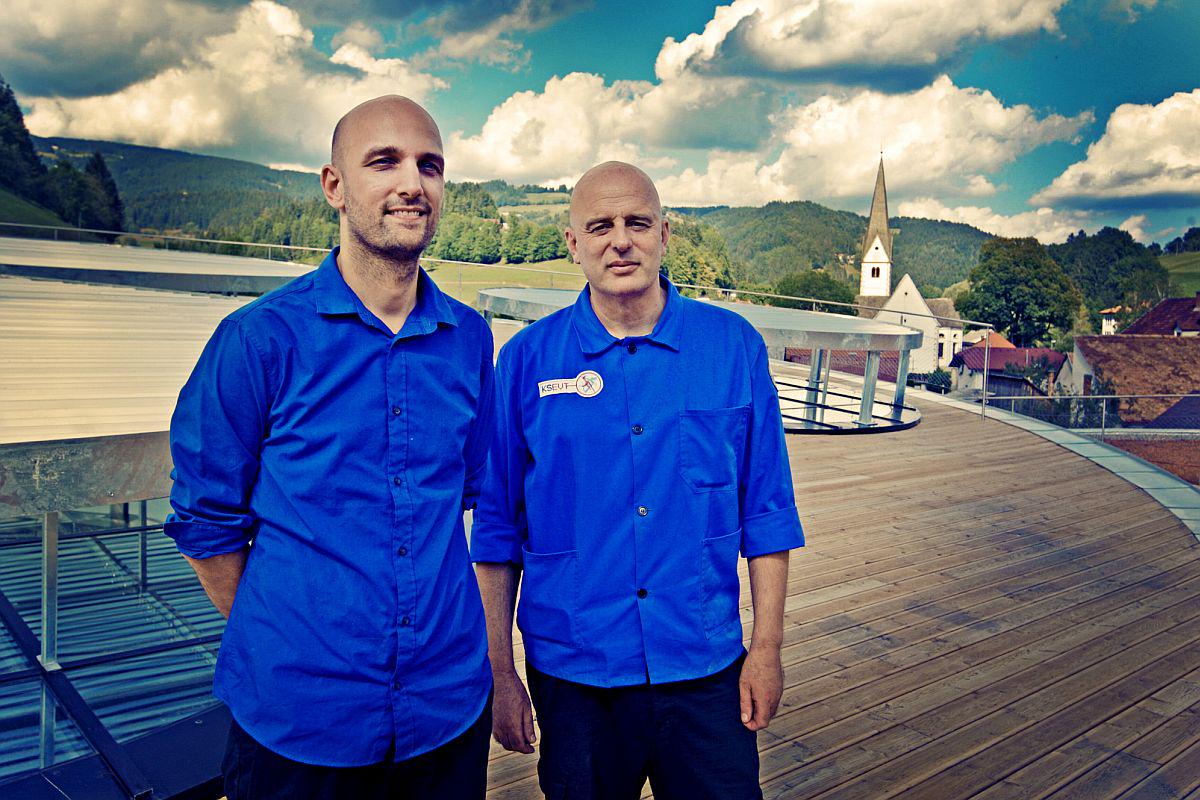
The founders of KSEVT, Miha Turšič, Dragan Živadinov, and Dunja Zupančič, have focused on the cultural aspects of space exploration. The facility in Vitanje, where the team was once based, has been renamed the Herman Potočnik Noordung Center of Space Technology, or Noordung Center for short, after the state became one of the organization's cofounders. The initial team is still responsible for two exhibitions focusing on Herman Potočnik Noordung and Anton Mavretič. This year, they organized exhibitions dedicated to Potočnik, Mavretič, Sunita L. Williams, and Marija Strojnik as part of the Science Without Frontiers exhibitions at the Bistra Technical Museum.
Because KSEVT was chased out of Vitanje, according to Turšič, it doesn't exist as an official institution and has its unofficial headquarters in the facilities of Osmo/za in Ljubljana's Bavarski Dvor neighborhood. Most of their Slovenian operations are based there, but the majority of their work is being conducted abroad, primarily in the Netherlands, where they have found more understanding for their projects, says Turšič.
An unresolved conflict with the team in Vitanje
"In contrast to the backward-looking approach of displacement and obstruction practiced by others, KSEVT is continuing its mission to connect art, the humanities, and science. Working together with European and Russian institutions dedicated to science and space, we are developing projects that transcend individual domains of knowledge. The challenges of the 21st century are not just technological in nature; they are primarily human end ecological," said Turšič.
The team is in conflict with the Vitanje-based institution because the "Ministry for Economic Development and Technology as well as the Vitanje Municipality are claiming our intellectual and physical property as they own, even though they have no legal authority to do that." According to Turšič, this proves that KSEVT was the "victim of political and economic greed."
Cooperation still possible
Turšič says that the team in Vitanje started to work on a project of their own, but that the original team offered them a helping hand. Even after the creation of a state-owned public institution, the KSEVT team suggested a joint program and other projects, but they were turned down. "If the new head is prepared to work with us, we're also ready to work with them. We have more than enough knowledge, connections, and everything else they need," says Turšič, but he adds that they would cooperate only if their intellectual rights are recognized.
"We left our things there and called on them to get the matter settled by legal means. After all, this is a public institution that doesn't have the legal authority to use our elements as part of its public mission," added Turšič.

































































